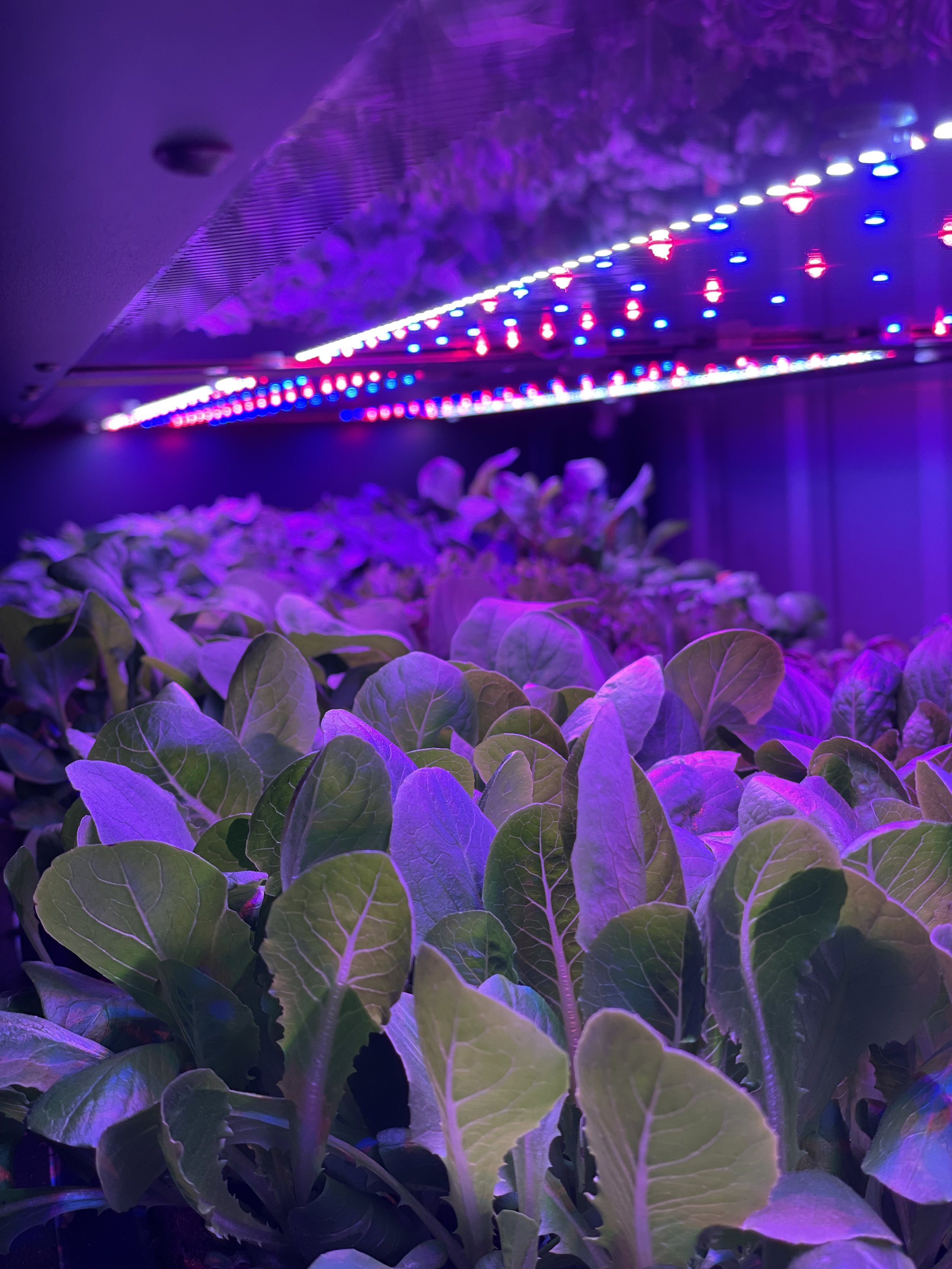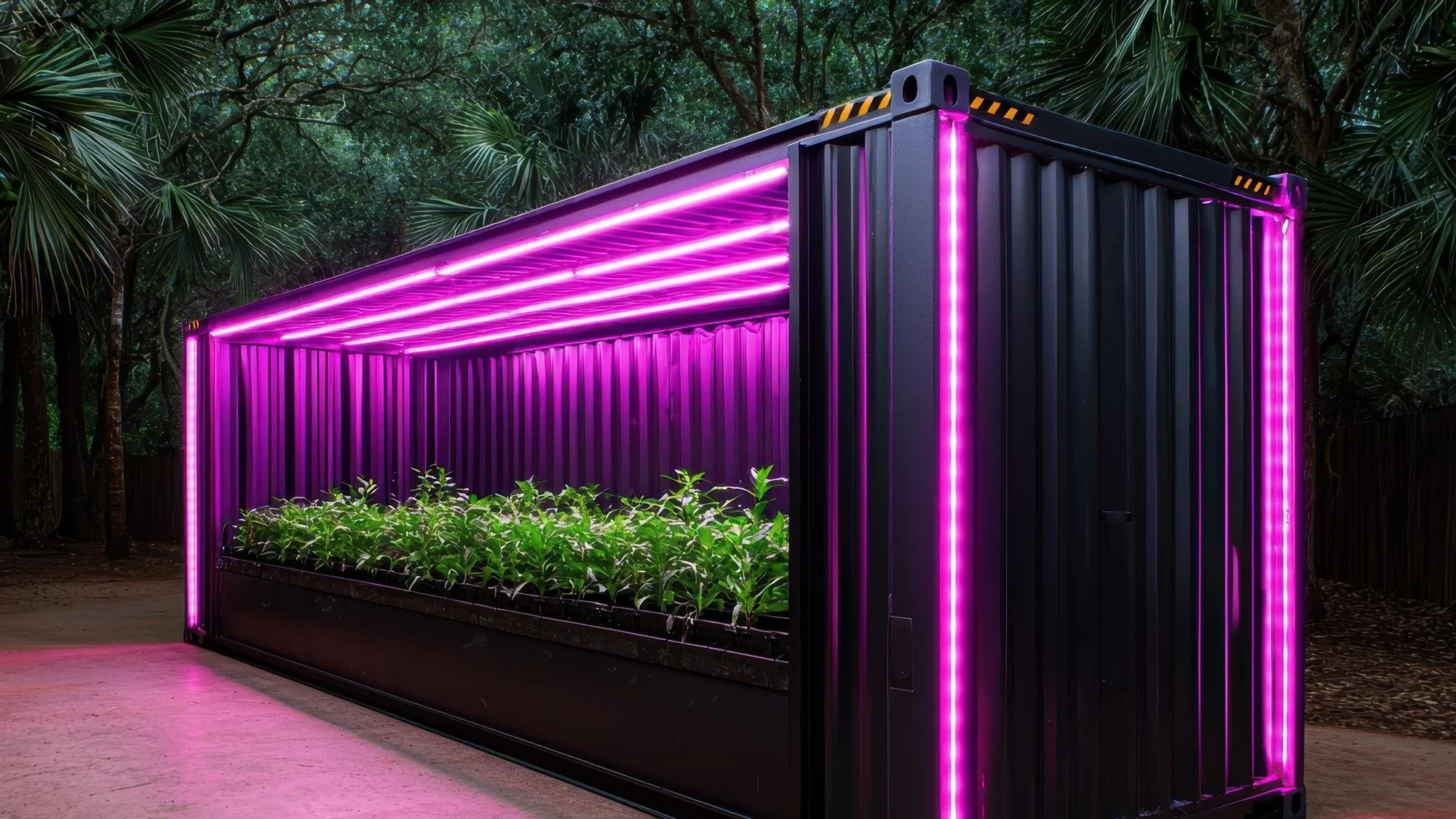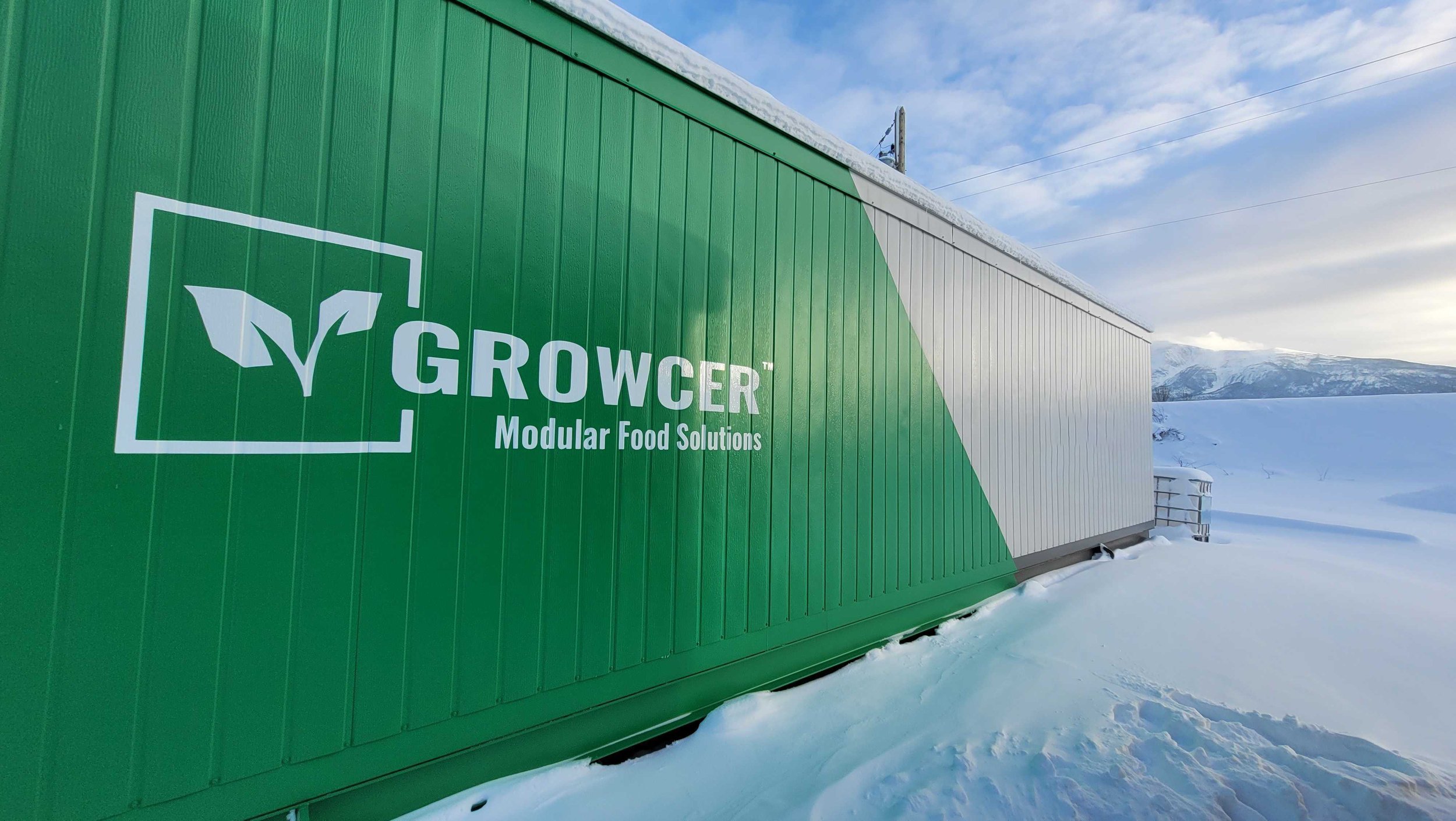
News About Farming in Shipping Containers & Limited Indoor Spaces
How Shipping Containers Are Shaping Urban Vertical Farming
Our global food systems are under siege, with climate change, natural disasters disrupting supply chains, and conflicts affecting agriculture in vulnerable regions.
Add to that a booming population—set to reach nearly 10 billion by 2050—and the math becomes startling. Experts predict we’ll need 70% more food to sustain humanity.
But, here’s the problem – soil quality is deteriorating fast, and we’re on track to lose most of the fertile ground we rely on. Traditional farming methods, while vital, seem ill-equipped to meet the challenge alone.
Urban vertical farming has emerged as an innovative solution – by growing crops in stacked layers within highly controlled environments, these systems use less land, water, and pesticides – with shipping containers offering a sustainable, space-efficient answer to the global food crisis.
Auburn University Expands Food & Agriculture Innovation With Advanced Vertical Farming Technology From AmplifiedAg, Steering Indoor-Grown Produce in New Direction
The Auburn University College of Agriculture has significantly expanded its Transformation Garden and FoodU program with the integration of an advanced container farming suite from indoor agriculture leader, AmplifiedAg. This expansion enhances Auburn’s 16-acre Transformation Garden research and education facility by incorporating cutting-edge vertical farming systems to support multidisciplinary agricultural education, research, and food production initiatives.
The newly installed container farm infrastructure comprises three AmplifiedAg container farms: one AmpVPS (Vertical Propagation System) unit, two NFT (Nutrient Film Technique) container farms optimized for leafy green production, and a fourth unit repurposed as a food-safe cold storage facility. This comprehensive setup enables students to engage in real-world vertical farming systems for both plant propagation and full-cycle crop production.
VIDEO: Freight Farms - Community Keynote: How Growcer Can Help + Survey
We’re actively supporting Freight Farms customers to keep growing. We’re working with current and former Freight Farms customers to create immediate and long-term solutions for your farm operations.
We are offering live support to chat through solutions and multiple support package options to help you move forward. Help us help you: Please take a minute to share your thoughts with us.
Your feedback will be used to build/source solutions that are relevant to where you need the most support.
What we need is a critical mass of farmers who are interested to unlock certain solutions so please signify your interest by taking the survey before the deadline.
King Tide Farms
I am a 3rd generation farmer so farming is in my blood. After college, I began working in the agricultural chemical industry in row crops. Here I learned what it takes to feed a nation and the logistics of it all. This is where my journey began but not until 2019 while I was in the Bahamas helping rebuild after Hurricane Dorian that I realized what my path would be.
I have held every kind of sales position imaginable so I knew I was just looking for the right product to put my knowledge, skills, and abilities behind to make it a success. This is when I began looking into hydroponics farming and more specifically Controlled Environment Agriculture(CEA). We are located in Charleston, SC which provides long growing seasons but unfortunately, land close enough to cities to sustain a profitable business is just unaffordable.
USA - KANSAS: Leafy Green Farms: A Farm in a Box
Brad Fourby is not your average Pittsburg, Kansas farmer.
While he’s harvested hundreds of heads of lettuce and produce on his farm, he rarely does so under the Kansas sun or on a John Deere tractor.
Instead, this native Californian turned Kansas farmer spends his time growing produce inside his 320 square-foot indoor hydroponic farm, Leafy Green Farms.
But what exactly is hydroponic farming?
In simple terms, hydroponic farming is the process of growing crops with water-based nutrients rather than soil. Instead of planting crops out in a field, hydroponic farming utilizes a controlled environment approach to agriculture, meaning the environment in which the crops are grown is managed to optimize growth and resources in a setting where variables like temperature, humidity, and light can be controlled.
CANADA: Red Deer Food Bank Providing More Fresh Produce With Second Hydroponic Shipping Container Farm
A second hydroponic container farm is now fully operational and growing food for Red Deer Food Bank's clients.
The hydroponic sea can was reconfigured to grow a wider selection of vegetables and since January it has produced lettuce, Swiss chard, kale and bok choy.
"We really do have a variety of fresh produce items that are available each and every week now, and we're just getting more and more," said executive director Mitch Thomson.
"We've had huge uptake. For people with different birth origins, they've been really excited about this big, beautiful bok choy we've been producing."
The food bank now has four hydroponic systems to grow produce in two indoor growing areas and two container farms. Food was also grown in its outdoor green house during the winter where recently spring crops were planted.
Illinois State's Cilantro Will Soon Be Grown on Campus, Inside New Vertical Farm
The farm, which officially launched Thursday, will operate out of a converted shipping container outside ISU’s Office of Sustainability on School Street. The 320-square-foot unit is equipped with hydroponic system and LED lighting to grow the equivalent of 1-2 acres of traditional field production with a fraction of the water required to grow up to 4,600 plants.
Taco Tuesdays at Illinois State University are about to get fresher as a new Vertical Farm prepares to grow cilantro for dining services.
Professor of Agriculture David Kopsell gives a tour of ISU's new Vertical Farm. The converted shipping container is expected to produce 50 pounds of cilantro per week for campus dining services.
ISU’s New Vertical Farm Makes Most of Small Space
When it comes to making the most of small spaces, owners of tiny homes would be impressed with what Illinois State University (ISU) can do with its modified shipping container farm.
In its new 320-square-foot vertical farm, ISU will be able to produce as many herbs annually as it could in 2 to 4 acres in an outdoor field.
It all started in 2019 when a group of ISU students in the Innovative Consulting Community (ICC) approached horticulture professor David Kopsell about growing a garden for their entrepreneurial project. He explained how hard that would be during an academic school year and offered another alternative — a Freight Farm container hydroponic system.
“I had heard about Freight Farm since 2013 when some of my colleagues started talking about them,” said Kopsell. Through much collaboration, that idea germinated and grew to the point it will be ready to start growing leafy greens this summer.”
MINNESOTA: Route1 - Growing Food, Feeding People, Connecting With The Earth
The morning sun casts long shadows over the fields as farmers swiftly load crates of freshly harvested produce onto a waiting distribution truck. The scent of damp earth and ripened vegetables fills the crisp Minnesota air. A rhythmic chorus of voices calls out orders as hands pass boxes from one to another, each filled with vibrant greens and fragrant herbs. The truck’s reverse alarm beeps steadily, a signal of movement and progress.
Standing at a distance, Marcus Carpenter watches with quiet satisfaction. His dream, Route1 — born from a time of crisis and a deep-rooted passion for agriculture — has manifested before his eyes. The food will soon be on its way to those who need it most, carrying a message of resilience and empowerment.
How Shipping Containers Are Shaping Urban Vertical Farming
Our global food systems are under siege, with climate change, natural disasters disrupting supply chains, and conflicts affecting agriculture in vulnerable regions. Add to that a booming population—set to reach nearly 10 billion by 2050—and the math becomes startling. Experts predict we’ll need 70 per cent more food to sustain humanity.
But, here’s the problem – soil quality is deteriorating fast, and we’re on track to lose most of the fertile ground we rely on. Traditional farming methods, while vital, seem ill-equipped to meet the challenge alone.
Urban vertical farming has emerged as an innovative solution. By growing crops in stacked layers within highly controlled environments, these systems use less land, water, and pesticides, with shipping containers offering a sustainable, space-efficient answer to the global food crisis.
University of Evansville Launches 'We Grow Aces!' To Tackle Food Insecurity With anu, eko Solutions
The University of Evansville in Indiana is launching We Grow Aces!, a new initiative that brings together education, sustainability, and community engagement to provide access to extraordinary experiential learning, while addressing food insecurity and workforce development.
The program, funded through the Eli Lilly Endowment's Indiana Youth Programs on Campus grant, will make possible the purchase of a Pure Produce Container, a vertical garden system jointly developed by anu and eko Solutions, housed in an up-cycled shipping container capable of producing 3,920 plants per 40-day cycle, or several tons of vegetables annually.
FarmBox Has Become an Essential Part of Ag Programs at Morgan Community College | SALUTE TO AG
Funded by a U.S. Department of Education Title III STEM grant, the FarmBox is a repurposed refrigerator container equipped with full-spectrum LED lighting, seedling trays, and moveable grow walls that can hold 3,888 plants. This system can produce as much as 2.5 to 3 acres of crops annually, harvesting 684 plants weekly while using only 3 to 5 gallons of water daily.
“The FarmBox uses programmable logic (PLC) to operate lights, pumps, timers, valves, and other equipment to grow the product,” said George O’Clair, MCC Electromechanical Technology Faculty. “The Electrical Mechanical Technology (ELMT) students study PLCs to operate those items. The FarmBox will be beneficial to the class to see an operating PLC in action.”
Day Coming When Sushi Chefs Use Wasabi From Nearby Modules
Wasabi grown on shelves in a shipping container and in the Yokohama area to boot? And delivered straight to sushi chefs working nearby?
Not likely, purists might shout, thinking that Japanese horseradish can only flourish in mountain areas with pristine rushing water.
Going against the traditional image, a specialized factory module in Shin-Yokohama boasts the latest in sensing technology to ensure cultivation conditions remain perfect 24/7.
The operator is looking to pitch an autonomous system based on artificial intelligence (AI) at some point to maximize production.
Using a container for farming is the brainchild of Tokyo-based agricultural start-up Nextage Inc. With technical support from semiconductor trading firm Macnica Inc. in Yokohama, Nextage has begun selling the agricultural module in the Japanese market.
CANADA: Hydroponic Farm Project Coming to Prairie River Junior High
We are thrilled to announce a new agriculture project that will bring hands-on, sustainable learning to our students! In partnership with The Growcer, a Canadian agritech company specializing in year-round modular farms, we will be deploying a hydroponic farm at Prairie River Junior High School.
This innovative, climate-controlled system will allow students to grow food in all seasons, ensuring a consistent supply of fresh, nutritious produce for our community. In addition to gaining valuable knowledge about food security and agricultural technology, students will develop critical skills in teamwork, responsibility, and environmental stewardship.
VIDEO - USA - St. Louis, Missouri - Video: Neon Greens Restaurant Offers Fresh Take on 'Farm to Table'
Thanks to hydroponics, Neon Greens is bringing a fresh take on farm to table by farming along Manchester Road.
The vertical vegetable farm is located right next door.
South Korea: New Container Farm To Be Unveiled To The Public
DSE, which operates "Hippo Farm Tech," a brand specializing in plant growth LED lighting, will unveil its container-type smart farm testbed to the public.
On March 20th, DSE announced that it will participate in the "2025 Resident Agricultural Machinery Fair" to be held at Taepyeongseong University Gyeongsang Gamyeong Park in Sangju, Gyeongsangbuk-do from the 25th to the 28th. The fair is hosted by Sangju City and organized by the Korea Agricultural Machinery Industry Cooperative, and aims to revitalize the domestic agricultural and equipment industry and create a foundation for overseas exports.
At the event, various cutting-edge technologies in the field of "AgTech" such as autonomous agricultural machinery, agricultural robots, AI, and ICT facilities will be displayed. 230 companies will participate and showcase more than 370 items.
TURKS & CAICOS: The Farm at Seven Stars Resort & Spa
The sun, the sand, the sea breeze–these are homegrown in Turks and Caicos. But the ubiquitous resort buffets? Much of the food is imported, often resulting in lackluster quality.
Not so at Seven Stars Resort & Spa, where the name of a new restaurant, The Farm, says it all. Wanting fresh produce, but faced with the challenge that most of the island’s foundation is limestone with little to no soil, Executive Chef Edwin Gallardo established a hydroponic container farm—the first on the island.
The resulting bounty of fresh vegetables—an estimated six tons of produce per year—not only guides the menu, but also the hotel’s ambitious sustainability initiatives. An underground cistern captures nearly 7 million gallons of rainwater annually, reducing water usage, and Seven Stars is also phasing out plastic cups, bottles, and straws, and implemented water stations with glass and metal refillable bottles.
University of Evansville Launches "We Grow Aces!" to Tackle Food Insecurity and Support Student Learning
The University of Evansville (UE) is launching We Grow Aces!, a new initiative that brings together education, sustainability, and community engagement to provide access to extraordinary experiential learning, while addressing food insecurity and workforce development.
The program, funded through the Eli Lilly Endowment's Indiana Youth Programs on Campus grant, will make possible the purchase of a Pure Produce Container - a vertical garden system jointly developed by anu™ and eko Solutions, housed in an up-cycled shipping container capable of producing 3,920 plants per 40-day cycle, or several tons of vegetables annually.
UE will then provide accompanying programming that will equip students-from middle school through college-with practical skills in nutrition, agriculture, and sustainability. By working alongside local schools, community organizations, and industry leaders, We Grow Aces! will prepare students for future careers while helping to meet critical needs in the region.



















